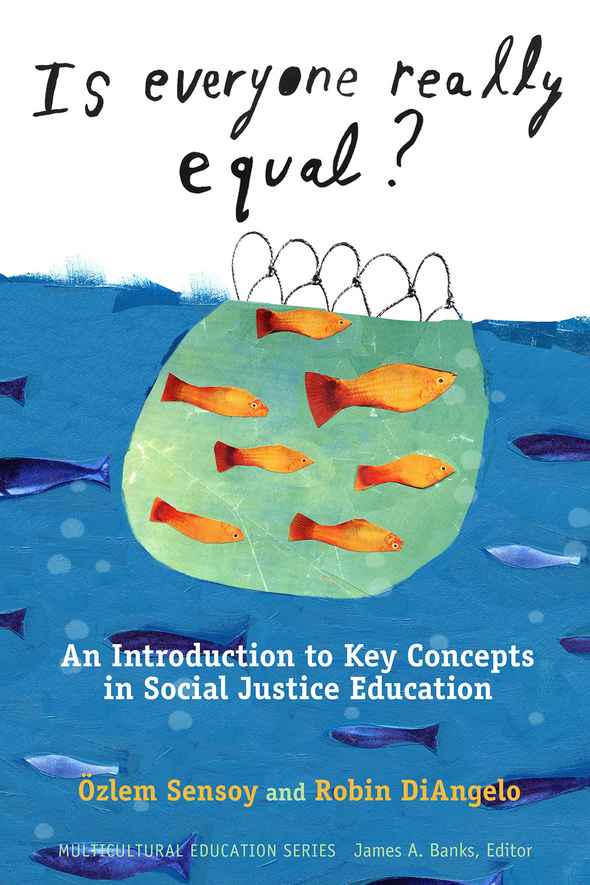Interfaith Council to host dicussion of 'Is Everyone Really Equal?'

Interfaith Council for Peace and Justice will host a discussion of "Is Everybody Really Equal?" on Tuesday, Feb. 28 from 7-9 p.m
Not everyone reading these words will know that I am an African-American man, so I’m taking a moment to mention it here. I don’t remember a time when I was unaware of being African-American, nor do I remember a time when I was unaware that that fact made me "different" within the context of American society.
Throughout my life, the significance of my "race" has given me a kind of double vision; a way not only of seeing things as they present themselves, but also of seeing beneath the surfaces they present.
I am also a professional storyteller. In one of my stories, I describe the way I felt as a child whenever I applied a "flesh colored" Johnson's Band-Aid to my arm. I say that it stood out "like a glaring beacon of miscoloration." I could not ignore the contrast between the color of the Band-Aid and the color of my arm.
But what if those Band-Aids at least came close to matching the color of my skin? Would I then even have noticed the subtle message they conveyed — that I was normal while whole groups of people were... well, something else?
Each of us is conditioned — or socialized — to accept the normality of the things we live with. Some of us — let's call them "outsiders" — people like me who are not "normalized" by certain mainstream practices, often are very self-conscious about this socialization process. We can reflect upon the moments when what was normal for others subtly labeled us as "different." But to many of those on the "inside," the easy match between their everyday experiences and the definitions they are given about themselves by society can cause the socialization process to pass completely unnoticed.
As an African-American "outsider," I was able to see the implicit bias of the "flesh-colored" Band-Aid. But there were thousands of others who didn't. How can they be helped to see that what they think of as neutral, normal and fair can actually be systemically discriminatory and harmful?
On Tuesday, Feb. 28, the Racial Justice Book Group — an offshoot of the Racial and Economic Justice Task force of the Interfaith Council for Peace and Justice — will be starting a new title: Is Everyone Really Equal? by Ozlem Sensoy and Robin DiAngelo.
Sensoy and DiAngelo's book begins with the important assertion that if we truly want a society that is equitable and fair, we first have to become critical thinkers — armed with knowledge that allows us to pierce the haze of certain "common sense”"assumptions and equipped with an awareness of the societal contextual meaning given to all information.
From there, the authors establish a clear line of connection from socialization, through prejudice, to discrimination and oppression. Along they way, they make stops to give specific attention to "invisible privilege," racism and White supremacy.
In a sense, Sensoy and DiAngelo’s book is to social justice what the Chicago Manual of Style is to the art of writing. It acts as a kind of guidebook. It introduces several basic fundamental ideas that form the structures beneath a number of essential concepts, thereby offering a clear road map for putting those concepts into action toward affecting change.
To make it a more effective tool, it includes discussion questions and extension activities at the end of each chapter. It also is filled with stories, examples and scenarios that help to illustrate each idea introduced.
This book was selected, in part, because of its broad-based appeal. Whether you are new to the field of social justice work, or count yourself among the "seasoned veterans," we're certain it will provide you with numerous insights and strategies to aid you in the creation of a more just and equitable society.
Interfaith Council for Peace and Justice will begin a discussion of Is Everybody Really Equal? on Tuesday, Feb. 28, 7-9 pm in the lounge at Northiside Presybyterian Church/St. Aidan's Episcopal Church, 1679 Broadway, Ann Arbor. The first session will kick off with a showing of the short film Ethnic Notions, followed by a discussion of the preface of Is Everyone Really Equal? Childcare and copies of the preface are available on request. Details: info@icpj.net or 734-663-1870.
La'Ron Williams is a nationally acclaimed, award-winning storyteller who has toured extensively presenting programs and workshops. He is a resident of Ann Arbor.

